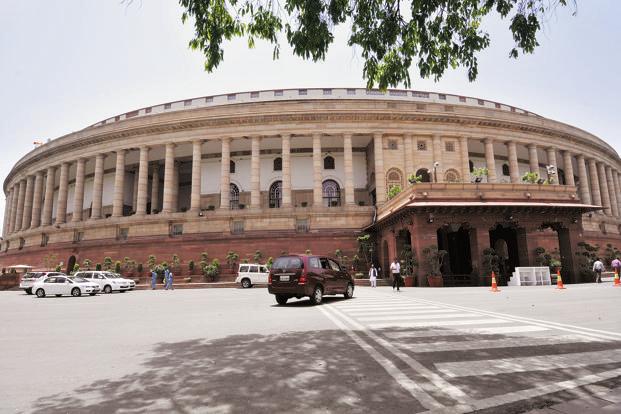GST passage prospects dim as non-NDA states fight for control
Live mint
By Gyan Varma | Remya Nair
Sun, Dec 04 2016. 11 41 PM IST
The prospects of GST supporting bills being tabled in the ongoing winter session are dim unless the government decides to extend the session

The GST council will meet again on 11 and 12 December in what could be one final push to agree on the draft laws before the end of the winter session of Parliament on 16 December. Photo: HT
New Delhi: The prospects of supporting legislation for the goods and services tax (GST) being voted through Parliament hangs by a thread with three major non-NDA-ruled states delaying a consensus in the recently concluded meeting of the GST council.
Leaders in the ruling National Democratic Alliance (NDA) acknowledge that the passage of these bills in the ongoing winter session looks difficult with the impact of demonetisation on the common man and on states’ finances dominating the debate.
The GST council will meet again on 11 and 12 December in what could be one final push to agree on the draft laws before the end of the winter session of Parliament on 16 December.
The prospects of these bills being tabled in the ongoing session are dim unless the government decides to extend the session. The main stumbling block so far in the GST negotiations has been the issue of sharing of administrative powers between the centre and the states. States insist that breaking the impasse on this issue that remains unresolved even after five meetings of the GST council is imperative before the bills get the council’s nod.
These bills will spell out the fine print of the GST’s design and form the basis of formulation of rules and processes under GST.
“The passage of the GST bill is very difficult. It is still unclear what the opposition plans to do. They are neither allowing Parliament to function nor is the bill getting finalised. They are creating hurdles for the government. They want voting on demonetisation; how can there be voting on a decision taken by the government?” said a senior leader of NDA aware of the government’s Parliament strategy.
There are four supporting pieces of legislation for GST—central GST (CGST), state GST (SGST), compensation for revenue losses to states and integrated GST (IGST). Three of these—CGST, the bill on compensation and IGST—require Parliament’s nod while SGST requires the nod of state legislatures. But before any of that, the bills have to be approved by the GST council. Passage of the bills at the earliest is crucial for the centre to meet its 1 April implementation deadline for this ambitious tax reform that aims to integrate the country into a common market.
However, West Bengal, Tamil Nadu and Kerala—all ruled by non-NDA parties—are leading the battle against the centre in the GST council insisting that states have exclusive administrative control over traders with an annual revenue threshold of less than Rs1.5 crore. But this is not acceptable to the centre as it will be left with few assesses to oversee. These states are insisting on a resolution of this issue before the GST council gives its nod to the bills.
The other challenge for the NDA lies in the Parliament. Although the Bharatiya Janata Party (BJP) has issued a whip asking all its members of Parliament to be present, there is uncertainty over whether the crucial legislation will come up for discussion at all. This is because the opposition is adamant that Prime Minister Narendra Modi takes part in the debate on demonetisation and intervene on behalf of the government.
Senior leaders in the government have argued that while NDA is ready for a debate on demonetisation and the PM too will take part in it, the government will not agree to the demand for a vote on it.
When asked about the government’s future course of action in case the bills do not receive the GST council’s nod next week, finance minister Arun Jaitley had said that the government has a “game plan” without giving details.
Political analysts are of the view that it is unfortunate that opposition parties were stalling the legislation. “GST was the only issue which succeeded in building consensus between the government and opposition. It is unfortunate that now supporting GST legislation is being stalled. It is the constitutional responsibility of parliamentarians to pass the bills. Opposition parties can’t hold the Parliament to ransom,” said A. K. Verma, a Kanpur-based political analyst and political science professor at Christ Church College.